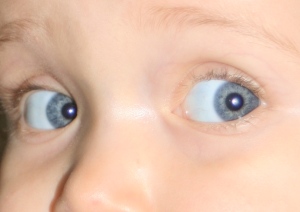 Important news about CMV which can cause disabilities in newborns. Please consider joining stopcmv.org/
Important news about CMV which can cause disabilities in newborns. Please consider joining stopcmv.org/
CMV saliva test for newborns
A new study has found that a simple saliva test can identify babies born with cytomegalovirus, CMV. Babies born with this common virus are at increased risk for hearing loss, vision loss or learning disabilities.
CMV is the most common congenital (present at birth) infection in the United States. Each year, about 40,000 babies are born with CMV infection. Most babies are not harmed by the virus, but some are. About 90% of babies who are infected with CMV have no symptoms at birth, and most parents aren’t aware that their children have it. However, about 10% to 15% of infected babies develop one or more lasting disabilities during the first few years of life. For this reason, all babies born with congenital CMV infection should have regular hearing and vision tests. An accurate newborn screening test would quickly identify those babies at risk.
According to Suresh Boppana, professor of pediatrics at the University of Alabama at Birmingham and lead author on the new study, somewhere between 20-40% of early childhood hearing loss probably is caused by CMV. The saliva test utilized in the new study, published Wednesday in the New England Journal of Medicine, was easy to perform and highly accurate. The researchers tested about 35,000 babies and the test was 97 percent accurate in identifying babies infected with the virus.
Newborns are screened for dozens of diseases and genetic disorders while still in the hospital. Dr. Boppana recognizes that adding another test to the current roster of newborn screening tests, which are determined by each state, will be no easy matter, but is optimistic.
Want to learn more about CMV? Please join us on Twitter for a live #pregnancychat on CMV on June 22nd at 12 noon, EST. We will be joined by Janelle Greenlee, President and Founder of Stop CMV – The CMV Action Network. StopCMV.org
Tags: Baby, CMV, cytomegalovirus, hearing loss, infant health, newborn screening
via News Moms Need » Blog Archive » CMV saliva test for newborns.



 National Women’s Health Week
National Women’s Health Week
